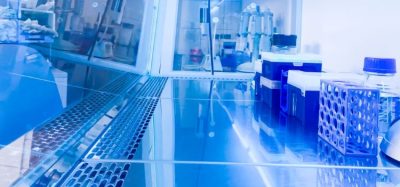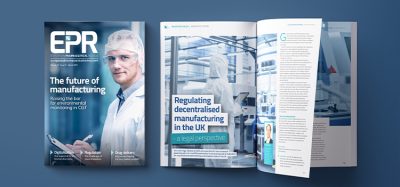Under the microscope: Steve Delity
Posted: 31 August 2011 | European Pharmaceutical Review | No comments yet
Rapid Micro Biosystems is a privately owned, venture backed company with headquarters in Bedford, Massachusetts. Since launching its GrowthDirect™ System in 2008, the company has now moved into Europe with the opening of its new demo centre in Darmstadt, Germany in June 2011. So, how does CEO Steve Delity view the current situation in the pharmaceutical industry?
“The power of pharmaceutical research and development is so massive that there will always be blockbusters, but will we see the prevalence, the frequency, the number of blockbusters we’ve had in the past? It’s a more efficient deployment of resources to take known drugs and look at whether it’s possible to increase their efficacy or decrease the side effects. The hunt for the next big blockbuster will always be there, but you can spend a lot of money and come up with nothing in the end, which is a huge risk.”
“For years, the pharmaceutical model was one where quality reigned, as it should, but there wasn’t a lot of attention to operational efficiency because once a drug was approved and if it was a blockbuster, the margin and the lifespan of the profits were enormous. What you’re seeing now is fewer blockbusters getting approved, the timeline for new drug approvals taking longer and competition from generics. The day something comes off patent, alternatives are available and so you get a very fast drop in revenue. Now I think you’re seeing more attention to operational efficiency.”
Operational efficiency requires investment across the whole manufacturing chain for pharmaceutical manufacturers. “They’ve done it with lean manufacturing and Six Sigma, but they’ve also reengineered and reprocessed and thought more carefully about when they make their drugs. There have been many changes in the manufacturing process,” says Delity. “I think you’re seeing operations starting to improve, companies want to be more efficient to create quicker cycle times and better yields. There’s a lot more to come on the manufacturing side.”
Delity believes that operational efficiency will permeate into quality control. “You’re starting to see things like lean labs and paperless labs,” Delity explains. “Principles that were applied to manufacturing are now being applied to quality control. One of the key drivers is automation and I think you’re starting to see automation along with lean principles being explored to eliminate opportunities to err, which is usually what drives inefficiencies in operations.”
Perhaps unsurprisingly, Delity is a proponent of rapid detection and automation. “It’s an ideal toolset for application to quality control. Especially in microbiology, quality control is predominantly a very manual labour intensive process with real challenges in its reproducibility and speed. It takes days or weeks to get answers. Manual processes can have poor reproducibility which can lead to errors which then need to be investigated. If you have a quarantined product until the investigation ends, you can incur a large cost, extract a lot of value from operations and have lower yields and a worse cycle time,” Delity clarifies. “With rapid detection, you catch problems sooner. If it takes you days to discover a contamination, you can do much more damage, unknowingly sending contaminated material through parts of your production line, which results in not only forfeiting the product but cleaning and sterilising a large section of the production facility. Automation and rapid detection can eliminate some of these problems that impact the manufacturing cycle time.”
One major obstacle towards rapid detection in the pharmaceutical industry is the myths that surround the process. The biggest myth, according to Delity, is that they’re difficult to validate. “The current culture method has manual, labour intensive steps. If you’re going to replace that, you’ve got to be sure that you’re replacing it with something that gives you the right answer, the answer you’ve been getting, the answer you’ve been releasing to the market.” The problem is, in Delity’s opinion, that in the past, technologies that were developed for other uses were applied to the pharmaceutical industry but haven’t been a good fit. “Our technology was developed with pharmaceutical regulations in mind. We use digital imaging so we’re detecting things very early. Instead of growing a colony of millions or hundreds of millions of cells for it to be visible, we see it between 10 and 100 cells so it can be reported well in advance.” Another myth is that rapid methods are destructive. “When a test is outside of spec, you have to do a root cause analysis and put in place a corrective action,” Delity explains. “The most important step is to identify the microbe, which is why the culture method is the primary test used. At the end of the test, you need something visible there that you can identify and pinpoint the likely source. You need a technology that is non-destructive so that you can test the original material. Ten years ago, technologies were destructive, breaking apart the cell to look inside so you couldn’t retest the original cell, but we’re proud that our technology is non-destructive. And the last myth is that rapid detection increases workload because you have to train technicians in a new technique, but the sample preparation for our technology is identical to what you do in the culture method.”
About Steve Delity
Steve Delity has more than 20 years of leadership experience and joined Rapid Micro Biosystems from PerkinElmer Life and Analytical Sciences, where he most recently led a business with responsibility for PerkinElmer’s Molecular Spectroscopy, Liquid Chromatography and Laboratory Information Management Systems (LIMS) businesses. Prior to that he was a consultant at McKinsey & Company, led field engineering projects for the M.W. Kellogg Company and was an Officer in the U.S. Army. Steve has a BS in Mechanical Engineering from the United States Military Academy at West Point and an MBA from the Harvard Business School.







